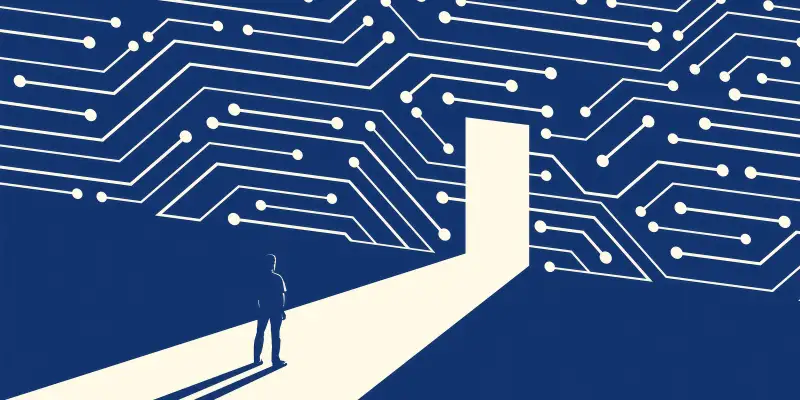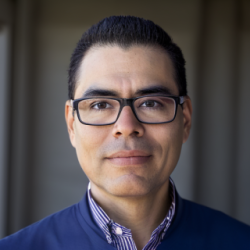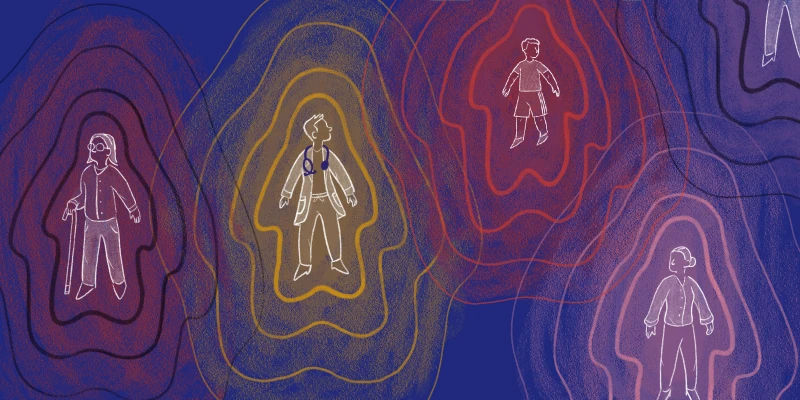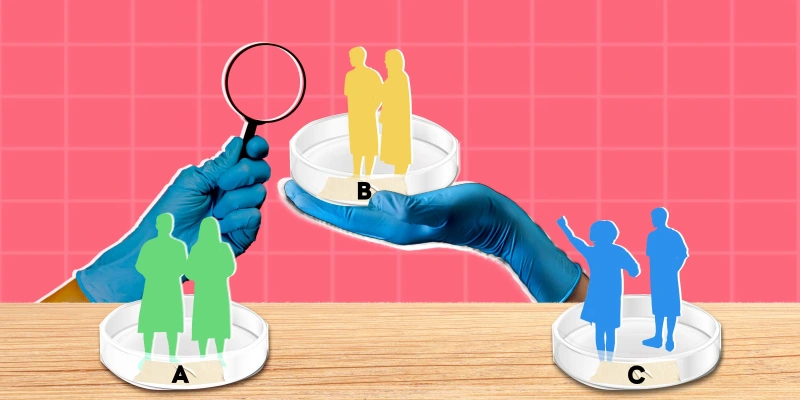“You wouldn’t last an hour in the asylum where they raised me.”
Taylor Swift’s voice croons in the background as an image of the Prometric testing center appears on my screen. This is only one example of a recent viral TikTok trend where people use audio from Swift’s “Who’s Afraid of Little Old Me?” to post videos and pictures that represent places or experiences they’ve deemed difficult, challenging, or perhaps trauma-inducing. The settings range from dance and gymnastic studios to high school hallways and Kumon centers. Users have also used this trend to wryly describe digital spaces or generational trends as “asylums,” such as the online games the Sims and Club Penguin, or even certain YouTube channels they watched avidly as children. While most of the time these short videos do not actually discuss mental health facilities or inpatient psychiatric units, the ones that do describe feeling invalidated by their physicians or that they did not get the help they needed.
While the use of psychiatric themes and verbiage is not uncommon in traditional media, particularly horror films, candid conversations regarding mental health and wellness have only just become popular with the rise of social media. There could be many reasons as to why this has occurred. Lack of access to proper care may lead individuals to form online communities with others struggling with similar issues. Some may wish to provide education regarding a gatekept subject. And perhaps others simply want to share their story and journey with mental health. However, while the production and posting of “therapy-speak” content has allowed for open discussions on various topics and illnesses, it has also inadvertently led to the incorrect use of psychiatric terms and themes by people with no training in the field.
Every day on social media I see at least one video of someone sharing their struggles with mental health, with a tone that ranges from humorous to bleak and serious. I witness influencers and anonymous commenters alike throw around words such as “manic,” “sociopath,” and “narcissist” to describe others online. For example, people online constantly discuss two polarizing figures on different sides of the political spectrum: Donald Trump and Joe Biden. Users within and outside the field of mental health analyze their movements, speech, and statements to discuss whether they are exhibiting signs of dementia or some sort of personality disorder. In addition to showing posts by nonexperts pathologizing others, social media algorithms may provide cutely decorated posts of either helpful or vague information regarding ADHD, autism, eating disorders, anxiety, or PTSD — leading users down the path of self-diagnosis.
Where do psychiatrists fit into these online discourses?
For other fields such as dermatology, plastic surgery, or dentistry, health care professionals with social media followings usually educate and reach larger masses by commenting on viral products or viral videos of other peoples’ medical issues. For example, plastic surgeon Dr. Anthony Youn received 9.7 million views for an Instagram reel reacting to another video of a young woman’s “Open Lock.” Indeed, in general medicine and surgery, it can be easier to separate the diagnosis from the diagnosed. The young woman Dr. Youn discusses is simply a conduit through which he is able to educate others while amassing views. Her life story, her personality, her previous statements or actions — none of that context is really needed for Dr. Youn to discuss the active condition.
Psychiatric medicine, on the other hand, requires a deep understanding of an individual and their emotions. It is difficult, if not impossible, to provide a diagnosis based on one meeting or one action. If the patient is not your client, you as a physician may not feel comfortable to provide any sort of professional insight regarding their psychiatric condition. Researchers have already noted the challenges psychiatrists might face while on social media. Clinicians may need to reflect on how they wish to utilize their own social media pages, how their public posts may impact patient care, and if they want their health care profession to be a large part of their public digital persona. Additionally, psychiatrists may need to have conversations with their own patients about viewing one another’s digital footprint and public social media posts, and determine what boundaries should be placed.
For psychiatrists who wish to educate a broader online audience or correct those misled by misused psychiatric terms, a heavily regulated social media account may limit interaction and widen the divide between the public and professionals. As such, conversations around how medical influencers should use social media as a form of public practice become murky. “Therapy speak” has entered and will continue to be part of the present-day lexicon. The consequences of using such terms incorrectly or as hyperbole can cause irreparable harm and stigma, especially when posted for a large online audience. Psychiatrists, along with their colleagues in the field, including psychologists, social workers, and counselors, must learn how the general public consumes and understands the subject of mental health online. For those health care professionals who wish to interact with an online audience, it is imperative to follow digital trends and utilize them as jumping off points to guide and educate others on the subject of mental health.
As an incoming psychiatry resident who has grown up with the internet, I constantly ruminate on how clinicians can participate in communities on social media. While to some, such actions might seem unprofessional or akin to selling out, the presence of medical influencers committed to spreading more digestible, accurate information via digital trends can become a great asset to the field. Indeed, dispelling misinformation, creating a strong viewer base, and becoming a trusted resource may lead to a more positive social media experience for its growing audience of users.
How do you balance social media and psychiatry? Share in the comments.
Soubhana Asif, MS is a medical anthropologist and fourth-year medical student at New York Institute of Technology College of Osteopathic Medicine. Her interests include community psychiatry, cross-cultural practice, and racial justice. She is a 2023-2024 Doximity Op-Med Fellow.
Image by GoodStudio / Shutterstock







